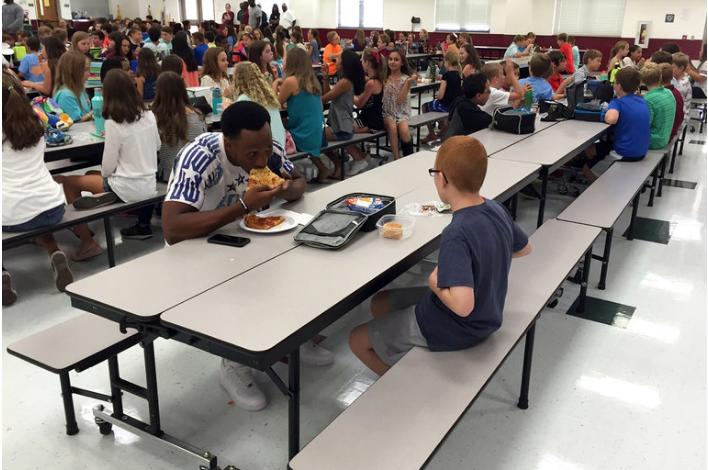“It was kind of like me sitting on a rainbow”: Reaching out to youth on the autism spectrum
It was a simple act of kindness, caught in a photo. Travis Rudolph, a Florida State University star wide receiver, was visiting a nearby middle school last week with his teammates when he spotted a 6th grade boy sitting by himself in the cafeteria. “So I asked him, could I sit down and have lunch with him and he said, ‘Sure why not?” Rudolph told reporters last week.
The boy, Bo Paske, could not have been more pleased. When asked how he felt about sharing his lunch with his hero, Bo told the reporters that “it was kind of like me sitting on a rainbow. I could picture it in my mind”.
In her autobiography, “Thinking in Pictures,” Temple Grandin describes the many challenges facing autistic people and, drawing on her own experience, the vital importance of caring adults in fostering talents through adolescence and into adulthood. She argues that there are two important ways that mentors can help cultivate autistic talent.
- Encourage, rather than discourage, the intense fixations that so many young people on the autistic spectrum disorder develop. She describes how, rather than discourage her obsession with cattle behavior, her high school science teacher helped cultivate and channel this interest in productive ways. From this perspective, if Travis were to find, for example, that Bo had a deep interest in sports, he could encourage him to take a quantitative approach to following his favorite players in ways that might foster talents in math.
- Help young people like Bo navigate the social challenges in their lives. In the book, Grandin describes how mentors and teachers are often in a strong position to provide direct instruction around presenting themselves to others. At the same time, they can help classmates develop empathy. As Bo’s comments suggest, and Grandin’s title makes clear, autistic people often think in pictures rather than language, and understanding this difference can be illuminating.
Travis sees his relationship with Bo flourishing. “We clicked from day one type thing. We had just a real great conversation, he’s just a great person. I would love to do it all over again…one man can make a difference.” Indeed. And if more autistic children had access to caring adults like Travis and the kind of responsive mentoring described in Grandin’s book, they would be better positioned to convert their early passions into meaningful life pathways.
This column is dedicated to our talented editorial assistant, Dawn Grosvenor, and her amazing daughter Ashley.











